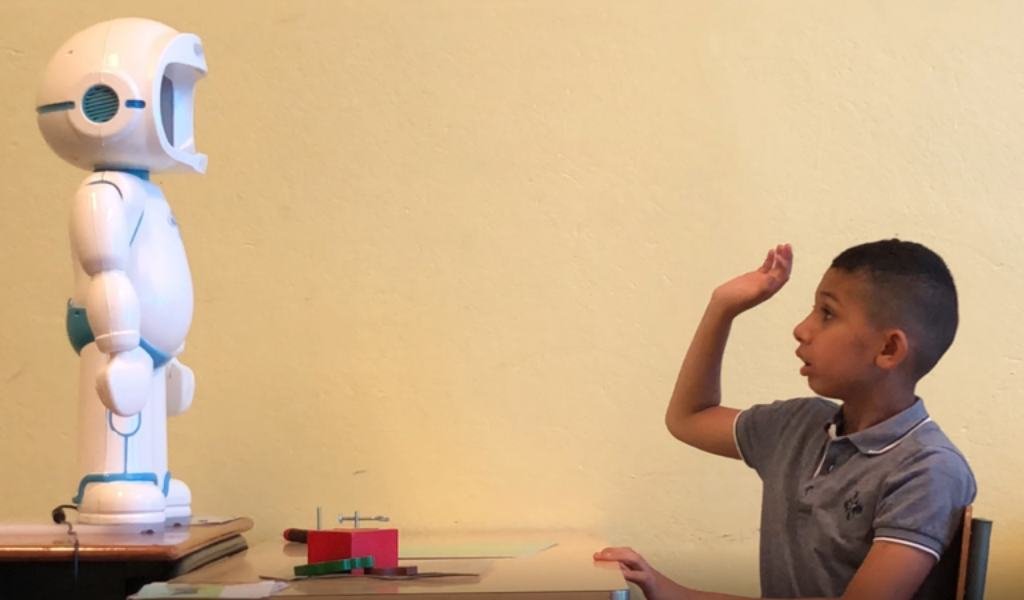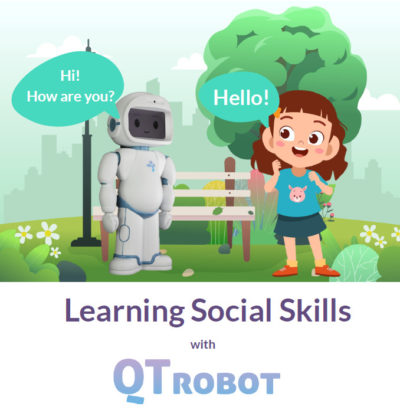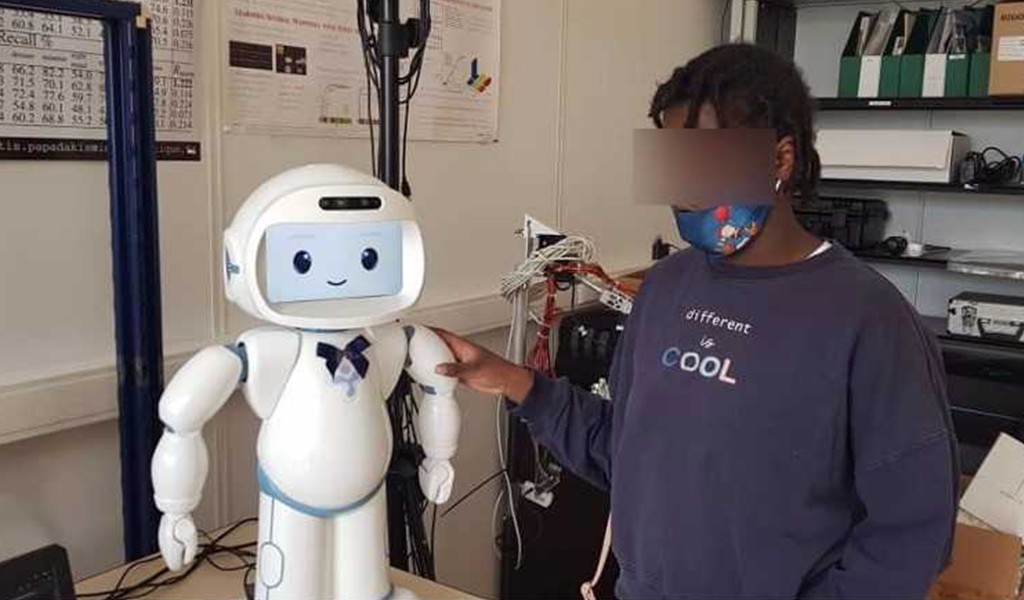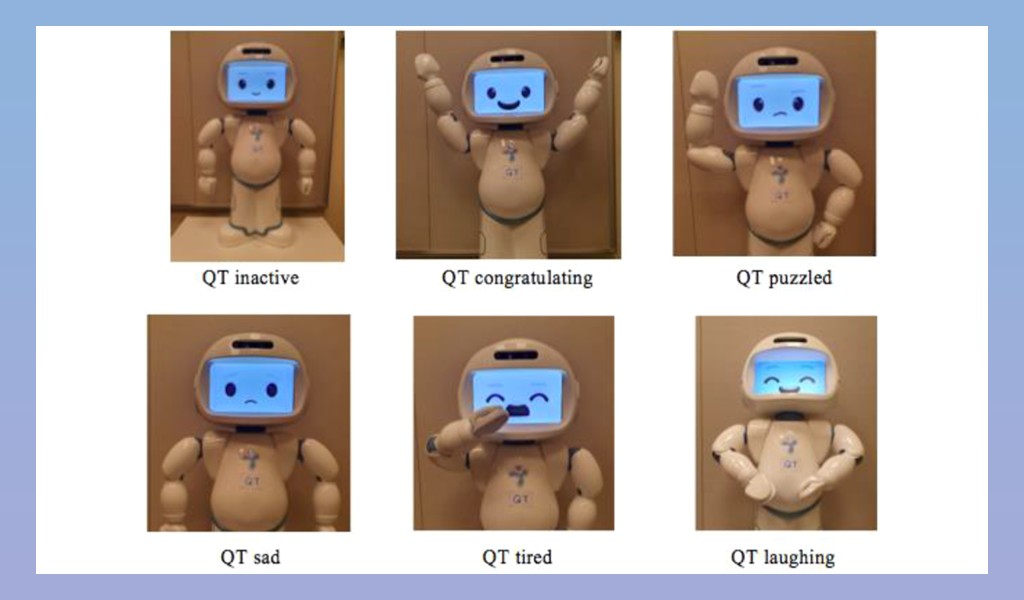Many individuals on the autism spectrum may require special support for practicing and gaining confidence in a variety of social skills such as greeting, understanding non-verbal cues as well maintaining a conversation. QTrobot curriculum for teaching social skills is a step by step curriculum designed to facilitate teaching a broad range of social skills to learners with autism.
Teaching Social Skills To Children With Autism:
Many individuals on the autism spectrum need support in learning how to react to various social situations. They often have the interest to interact with others, but may not know how to start a conversation and get engaged with friends and peers or may be overwhelmed by the idea of new experiences.
Training children with autism on social and communicational skills have a direct impact on an individuals quality of life and mental health. Also, it can positively influence learning opportunity in children with autism by facilitating their engagement with others in the school and in educational activities.
QTrobot Social Skills Training Curriculum:
The social skill curriculum is a step by step teaching tool developed to target a variety of social skills. The skills will be taught based on prerequisites the individual already mastered. In this curriculum, the most important social skills taught, are those that individuals diagnosed with Autism Spectrum Disorder, other developmental delays or behavior challenges may lack. Learning the social skills as defined in our curriculum, are geared towards obtaining more social success in the individual’s life. When social skills expand, the individual has more opportunities to interact with the environment and thus the quality of life can be improved.
The following is included in the QTrobot social skills training curriculum:
- Beginner social skills, such as joint attention and answering basic questions
- Pre-intermediate skills, such as requesting peers to play, sharing, and answering pre-intermediate questions
- Intermediate skills, such as turn-taking, greetings, joining into play, requesting assistance
- Advanced skills, such as maintaining a conversation, commenting, showing empathy and coping with teasing
Science Behind The QTrobot Social Skills Training Curriculum:
The curriculum is based on Applied Behavior Analysis (ABA), an evidence-based and worldwide implemented method to teach individuals with Autism Spectrum Disorder, other developmental delays and/or behaviour challenges. This evidence-based method started in 1959’s and is now an internationally known training method. Since it is based on data collection and ongoing research, the ABA strategies used in this curriculum have proven to be effective. All strategies used in this curriculum, such as prompting and reinforcement procedures, are based on ABA.
The skills being taught in the curriculum, are based on the following:
- typical developmental milestones,
- most frequent deficits measured across the population we teach,
- most important social skills needed to be successful in daily life,
The prompting procedure used is named Error Correction. This prompting procedure is worldwide used and can be found in many scientific literatures. It is set up that the learner will not be taught an error, but prompts are used more intrusively. Also, distractors are interspersed. Distractors are meant as maintenance (mastered) trials that we expect the individual knows. Therefore, we expect the individual to correctly answer them, before they will go back to the original instruction/sd.
Further, we attempt to always finish a teaching trial with a successful response. In the case the individual has multiple incorrect responses, do not continue after 3 incorrect responses. But finishes with an easy command, and provide a mid-level reinforcement.
Prompts are also faded out per ABA theory. For example, at times QT will say ” Look at the tablet” and QT will point to the tablet. At other times, QT will only point to the tablet, or will not say anything. Different type of prompts is used when the instructions are asked, such as visual prompts shown on the tablet, textual prompts shown on the tablet, or QT will model it first. These prompts are also faded out slowly to teach independence.
The reinforcement is set up according to the principles of ABA. We provide high-level reinforcement at the onset of teaching a new skill and/or when an individual is showing major progress. Reinforcement will be thinned out, once the individual displays progress or is close to mastery of the skill. That way we have used it to condition the individual to learn the skill, and then we slowly move to another new skill. When QT provides verbal reinforcement paired with a physical movement, this can be considered as a high-level reinforcement. Reinforcement is also according to different schedules. That means QT does not reinforce every trial. Reinforcement is thinned out. This way the individual does not learn to become dependent on reinforcement.
Some of the goals are repeated within other goals. Repetition will help the learner to maintain the skills.
Another important facet in ABA is generalization. The curriculum is set up that the learner will first practice a skill with one person or setting, but will also be taught to display the skill with another person, in another setting or with a different stimulus. This will help the learner to be flexible and implement skills in different settings and with different people and to not rely on just one person or setting.
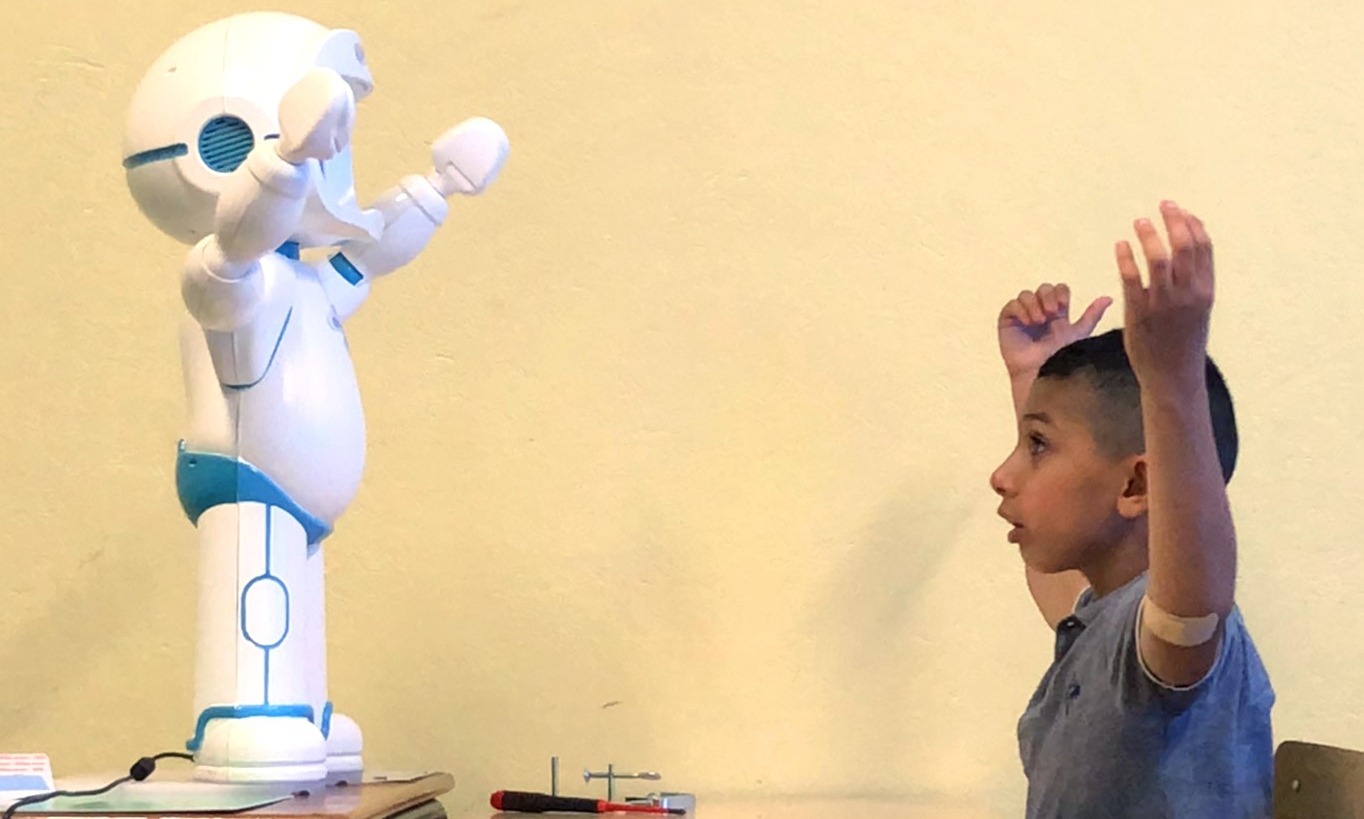
Who Can Benefit From QTrobot Social Skills Curriculum?
This curriculum is not only for learners on the autism spectrum. Any individual who has difficulty in social skills development can benefit from practising with this curriculum.
Social Skill Curriculum Developer
Lilyan W. J. Campbell, Clinical Director and founder of ABA works in the USA, and 2 agencies in Europe (ABA Center International and Aspire, ABA Center Europe) is a licensed Psychotherapist and a Board Certified Behavior Analyst. Lilyan has 18 years of experience working with individuals and families in both Europe and the United States. Her dedication and passion shine through as she motivates clients to accomplish positive goals, emotional regulation, language acquisition, and balance in all aspects of their lives.
